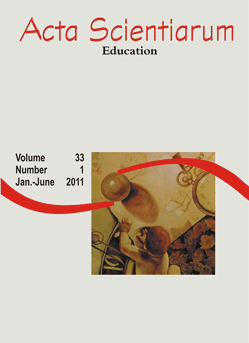<b>Appropriation and resistance: resignifications of education politics in teaching practice</b> - doi: 10.4025/actascieduc.v33i1.12806
Abstract
Recently, we discussed the reform of secondary education within Ceara State, northeastern Brazil. We saw that, starting in the 1990s, education policies have been characterized by the attempt to transform government actions into broad societal consensuses. In the process of data collection, specifically during the interviews with teachers regarding the reform, we detected a mismatch between what the reform consisted of and what teachers described as its main features. Teachers, through their reports, suggest the imposition of official agencies conditioning the school curriculum. The interviewees reveal the gap between the events in the classroom and the hegemonic discourse of the public sector. Thus, our paper discusses, on one hand, that the discourse of consensus, the clamor for reforms in society, has no support when taken within the walls of the school and into the classroom; on the other hand, that reforms are presented without the necessary elements for their implementation. Teachers establish a path between the norm and reality, a shortcut to the critique of public discourseDownloads

This work is licensed under a Creative Commons Attribution 4.0 International License.
DECLARATION OF ORIGINALITY AND COPYRIGHTS
I declare that this article is original and has not been submitted for publication in any other national or international journal, either in part or in its entirety.
The copyright belongs exclusively to the authors. The licensing rights used by the journal are the Creative Commons Attribution 4.0 (CC BY 4.0) license: sharing (copying and distributing the material in any medium or format) and adaptation (remixing, transforming, and building upon the material thus licensed for any purpose, including commercial purposes) are permitted.
It is recommended that you read this link for more information on the subject: providing credits and references correctly, among other crucial details for the proper use of the licensed material.















































